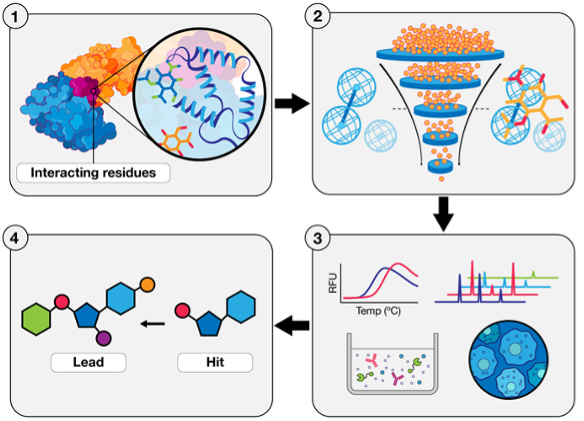Negative immune checkpoints are regulators of the human immune system that hinder the ability of T cells to attack cancer cells. There are currently no small molecules clinically approved as immune checkpoint inhibitors for cancer immunotherapy. This project aims to validate new lead identification strategies to develop small molecules that can bind immune checkpoints and/or hinder the immunosuppressive function of negative immune checkpoints.
Small Molecules from Antibody Pharmacophores (SMAPs) are utilized in this project as a novel lead identification strategy for immune checkpoints. The strategy is based on building pharmacophore maps from clusters of key interacting residues of monoclonal antibodies (mAbs) with immune checkpoints from mAb-immune checkpoint co-crystal structures. These pharmacophore maps are used in the virtual screening of large chemical libraries to identify a focused library of potential hits based on pharmacophore overlay. Biorthogonal assays are used for hit validation, followed by hit-to-lead optimization.


